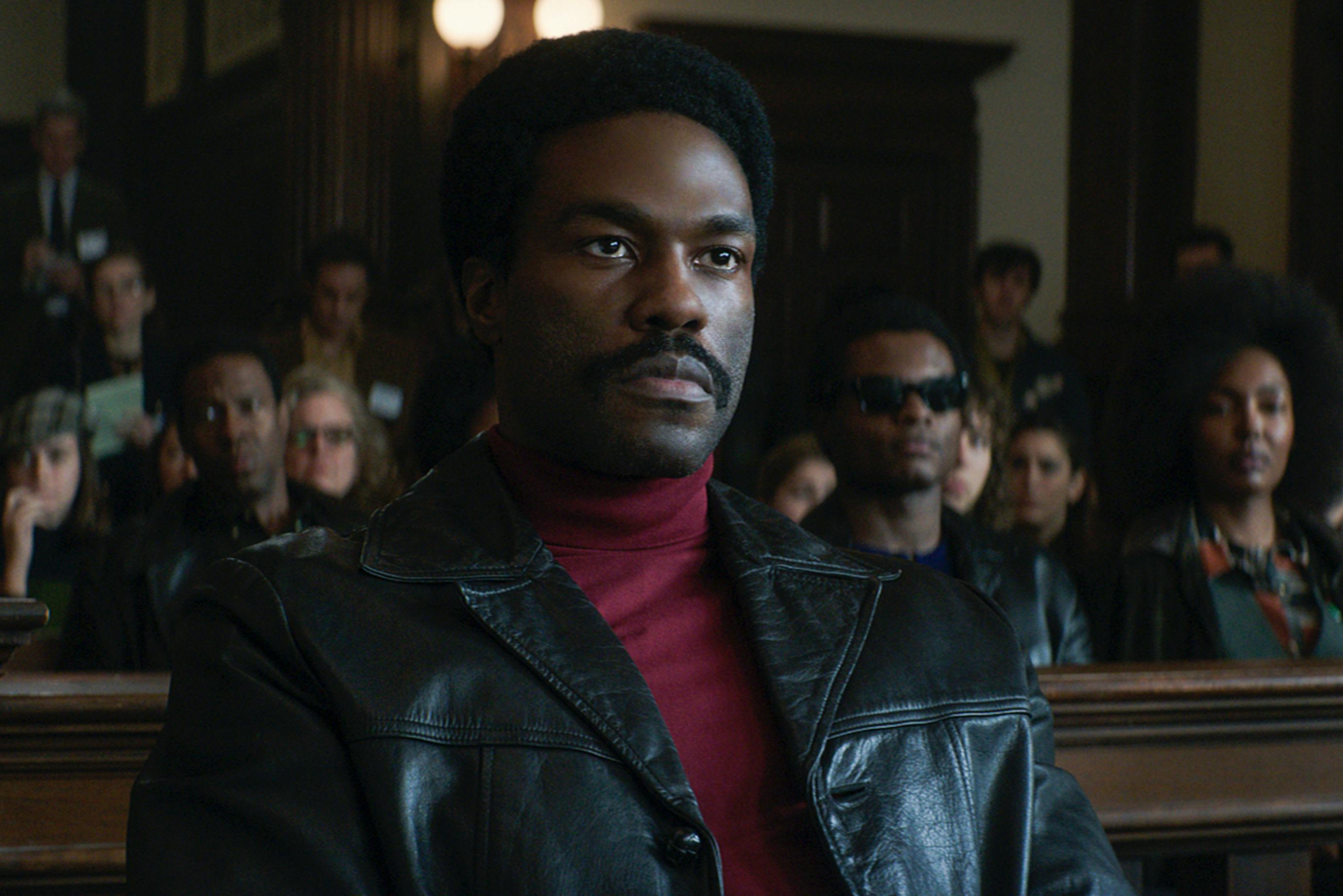It took just four years for Yahya Abdul-Mateen II to go from his television debut to the Emmy Awards stage. And acting wasn’t even his first love.
Abdul-Mateen graduated from U.C. Berkeley with an architecture degree. When he was laid off from his job in the San Francisco Mayor’s Office of Housing and Community Development in the early 2010s, he decided to try a different direction. He applied to N.Y.U., Harvard, and Yale drama schools, was accepted into all three programs, and chose Yale. After earning his M.F.A., he landed his breakthrough role as a disco prince in Baz Luhrmann’s 2016 hip-hop drama seriesThe Get Down. From there, he went on to parts in Baywatch, The Greatest Showman, Aquaman, and Us. In 2020, he won the Emmy for Best Supporting Actor in a Limited Series or Movie for his performance as superhuman-turned-househusband Cal Abar in Watchmen.
His ascent hardly ends at the Emmys. He rose to the occasion in Aaron Sorkin’s 2020 courtroom drama The Trial of the Chicago 7, delivering a forceful yet finely calibrated portrayal of Bobby Seale, the real-life co-founder of the Black Panther Party. The film recollects the antiwar demonstrations outside the 1968 Democratic National Convention, the resulting clashes between protestors and authorities on the streets of Chicago, and the federal trial of demonstration leaders that ensued. Despite having no affiliation with protest organizers, Seale was prosecuted alongside seven of them.
In a defining scene from the film, Judge Julius Hoffman (Frank Langella) has Seale bound and gagged on the courtroom floor. It’s a barbaric act that Sorkin pulled straight from the court transcripts. Manifested through Abdul-Mateen, the scene explodes out of the past to shake the foundations of our present.
Here, Queue takes a moment to honor Abdul-Mateen’s performance in The Trial of the Chicago 7, and to let him speak for himself about what it has meant to play Bobby Seale. As for Sorkin’s lasting impression of the actor? “I can’t say enough about Yahya,” he reflects. “We’re going to be seeing plenty more of him, I guarantee you.”
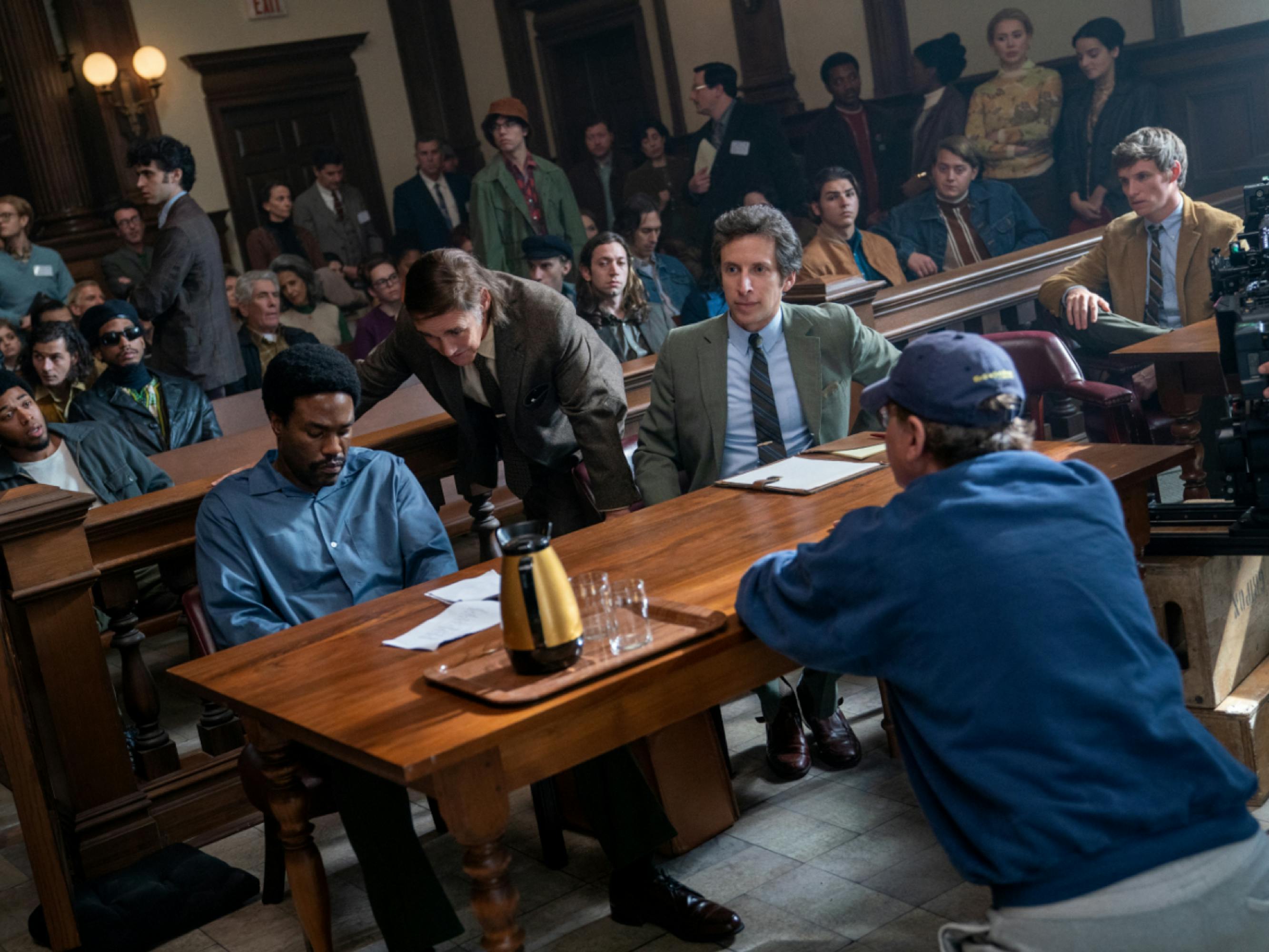
Yahya Abdul-Mateen II and co-stars directed by Aaron Sorkin (opposite)
Photo by Niko Tavernise
“When I play a character who is living, one of my first instincts is to understand what they were after. I want to understand the essence of that person. I know that I’m not going to do a one-for-one imitation. I want to understand their soul, I want to understand their concerns, and I want to make their concerns become my own concerns. My performance is my interpretation of their needs, wants, voice, and desires.”
—Yahya Abdul-Mateen II
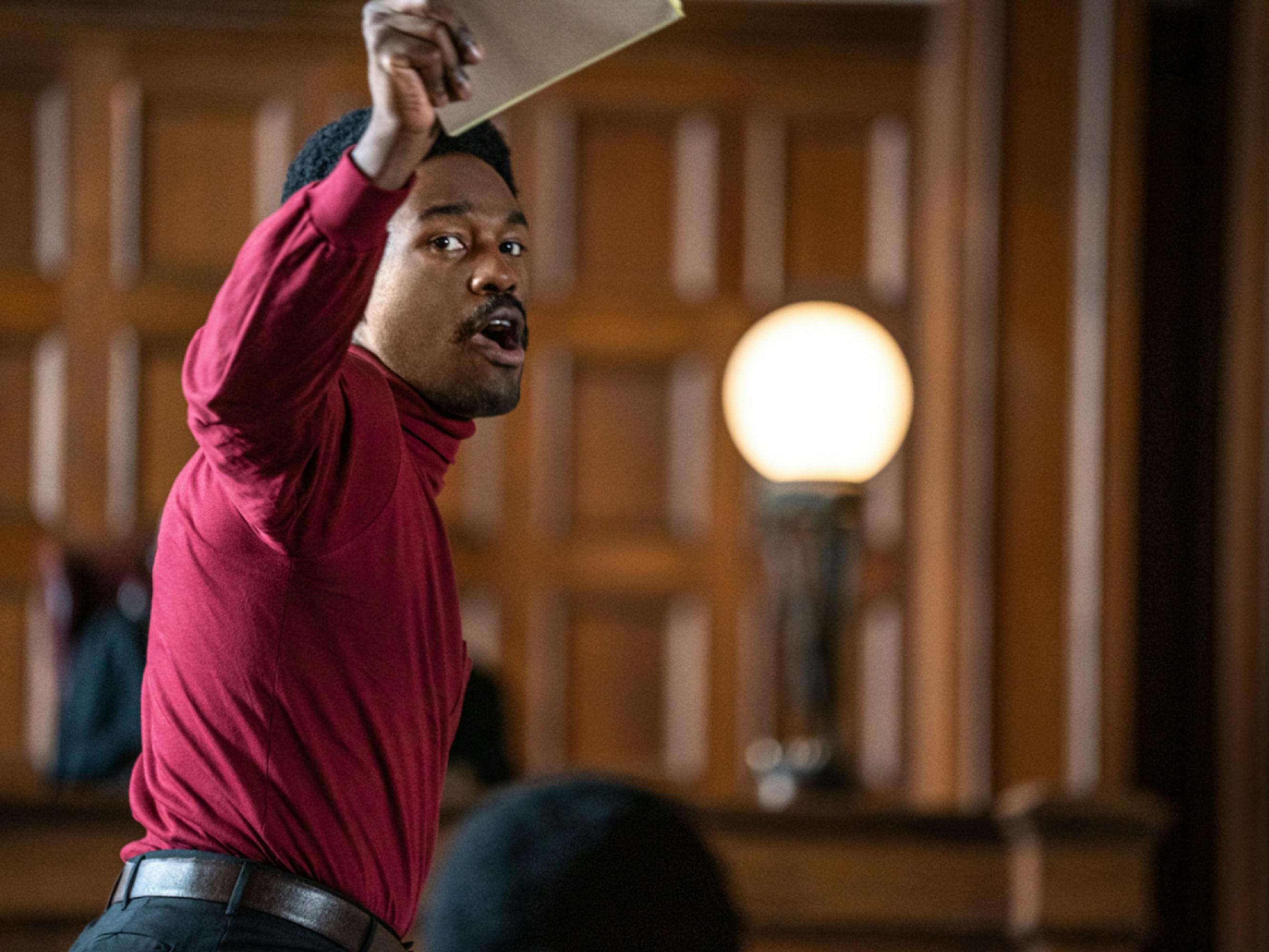
Yahya Abdul-Mateen II as Bobby Seale
Image courtesy of Netflix
“Bobby Seale had every reason to be or to feel defeated, but he was not a guy who was going to lose or was going to allow someone else to see defeat in his eyes or in his disposition.”
—Yahya Abdul-Mateen II
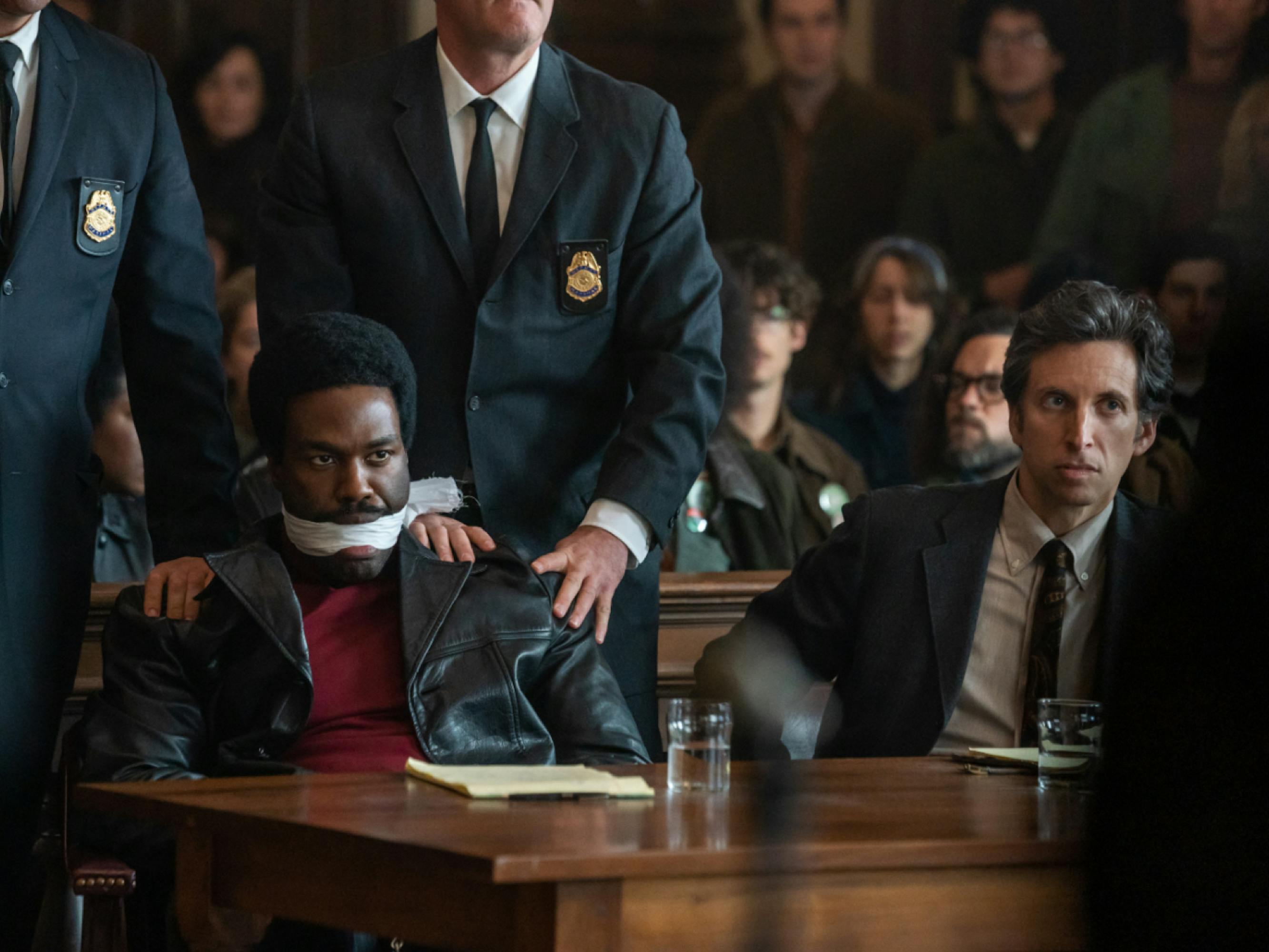
Bobby Seale was bound and gagged on an order from Judge Julius Hoffman during proceedings
Image courtesy of Netflix
“I like to think of Bobby Seale and the other defendants as regular Americans, everyday humans. So often we have figures from history that are put on a pedestal — sometimes rightfully so. I think one of the things that happens when we do that is it makes them not like us, and so when we are faced with injustices in our own lives, we believe that we have to be larger than life in order to do something about them.”
—Yahya Abdul-Mateen II
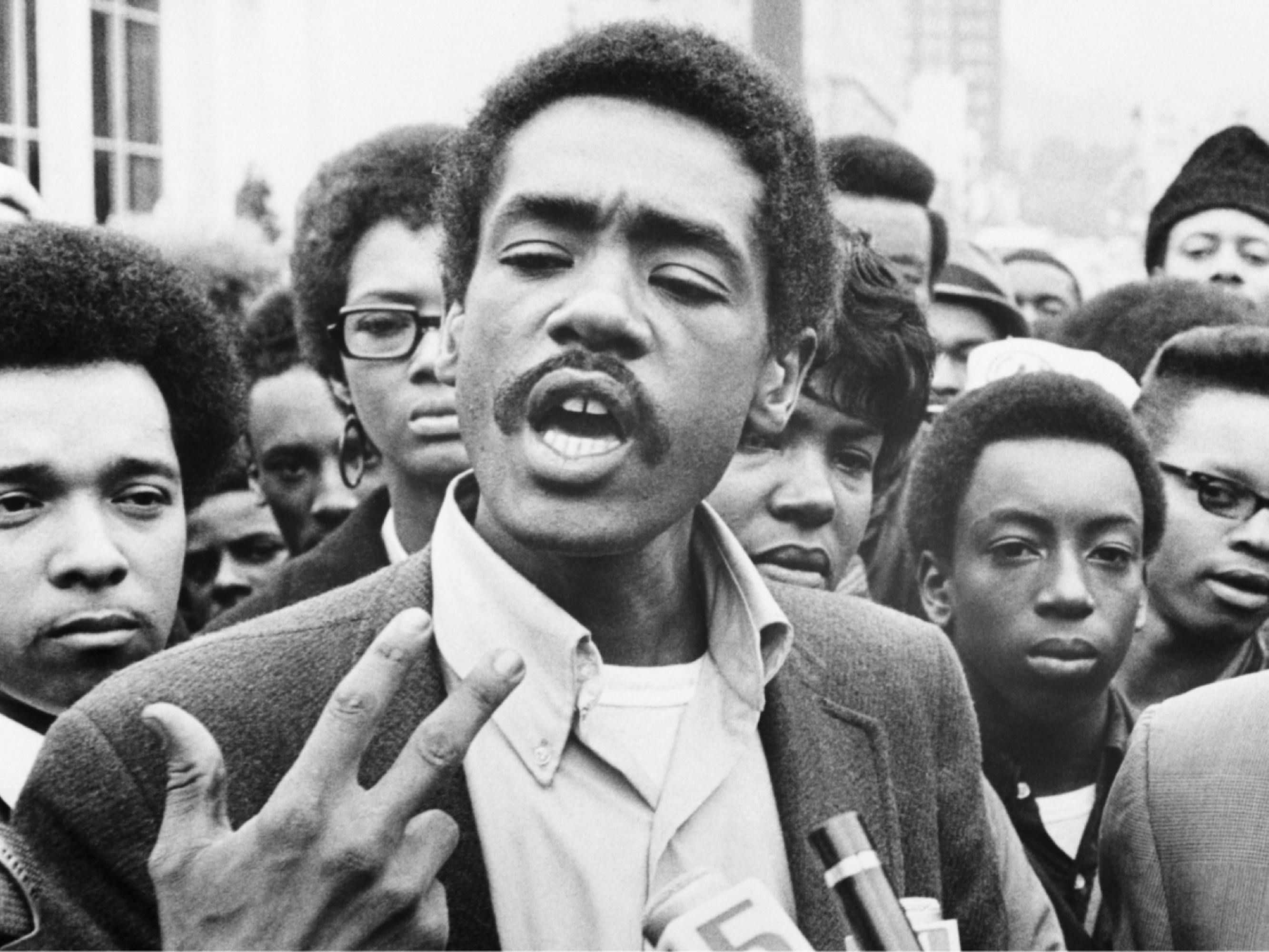
Bobby Seale, age 31, speaks to a crowd gathered at the Berkeley County Courthouse following his arraignment in February 1968
Photo courtesy of Bettmann
